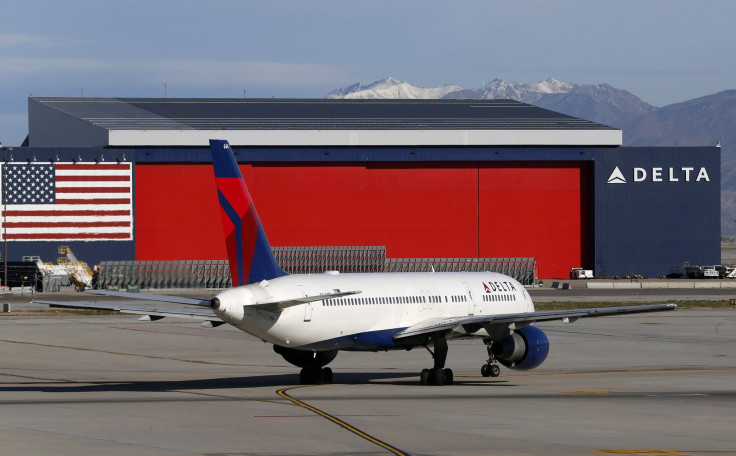Delta Air Lines, Inc. (DAL) Q4 Earnings Preview 2014: Earnings Per Share Up 125% on Lower Fuel Costs, Higher Revenue

Delta Air Lines Inc. (NYSE:DAL), the world’s second-largest airline, is expected to report a 125.4 percent increase in earnings per share as lower fuel costs and growth in its domestic demand offset falling performance in its Pacific segment.
The Atlanta-based company will report fourth-quarter earnings on Tuesday before the market opens. Analysts polled by Thomson Reuters expect, on average, Delta’s net income to rise 119 percent to $521 million from $1.1 billion in the year-earlier quarter, while earnings per share (EPS) are seen soaring to 63 cents from 28 cents a year earlier.
Revenue is projected to rise 5 percent to $9.03 billion from $8.6 billion year-over-year.
In December the company said it expected fourth-quarter operating profit margin to be up from the year-earlier quarter's 5 percent to a range of 8 percent to 9 percent.
Delta reported Jan. 3 that its December passenger revenue per available seat mile rose 10 percent, driven by continuing strong demand and benefits from the timing of the Thanksgiving holiday, which included more December flying than in the preview holiday season.
"We think DAL is likely to maintain a revenue premium to peers," said Jim Corridore, of S&P Capital IQ Analysts. "Its December unit revenue growth of 10 percent was aided by a shift in Thanksgiving travel into December, but it was well ahead of our expectations. We see DAL as best in class among U.S. airlines," said Corridore.
Delta benefited from a drop in crude oil prices, from $116 per barrel at the end of the third quarter to around $106 at the end of the fourth quarter. In addition, the price per gallon of jet fuel went from $3.05 in September to $2.77 in November, the lowest of the year, according to the Bureau of Transportation Statistics.
Furthermore, the airline's fuel costs were cut because it now produces its own jet fuel at the Trainer, Pa., refinery it bought from Phillips 66 (NYSE:PSX) in 2012.
The company also benefitted from beginning to use the Boeing Company’s (NYSE:BA) fuel-efficient 717-200 jet during the fourth quarter.
In addition, Delta will gain from a reversal of its tax valuation allowance.
"With the reversal of the tax valuation allowance, the company expects to record a non-cash net gain of approximately $8.5 billion in the December quarter, which will be treated as a special item," Delta said last month.
For all of 2013, Delta expects to post a record $2.6 billion in pretax profit, a 70 percent increase over 2012, with 2.7 points of pretax profit margin expansion.
© Copyright IBTimes 2024. All rights reserved.












